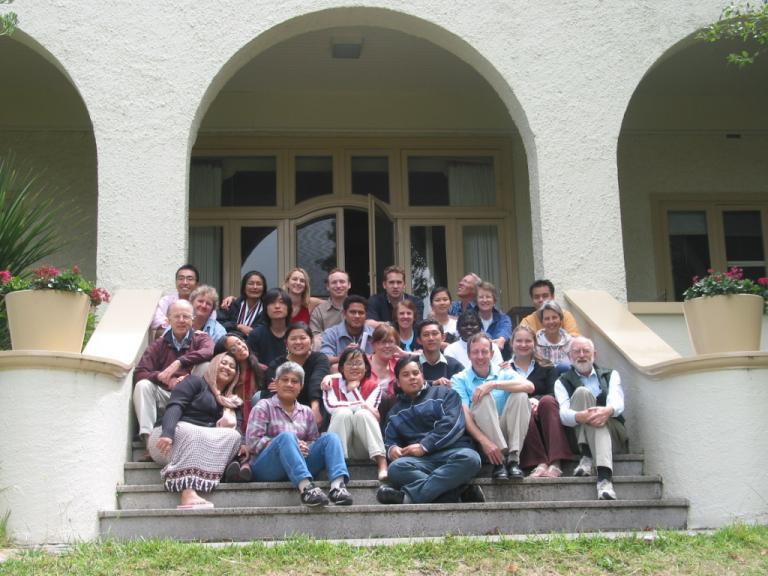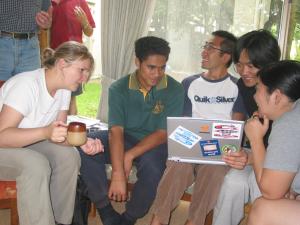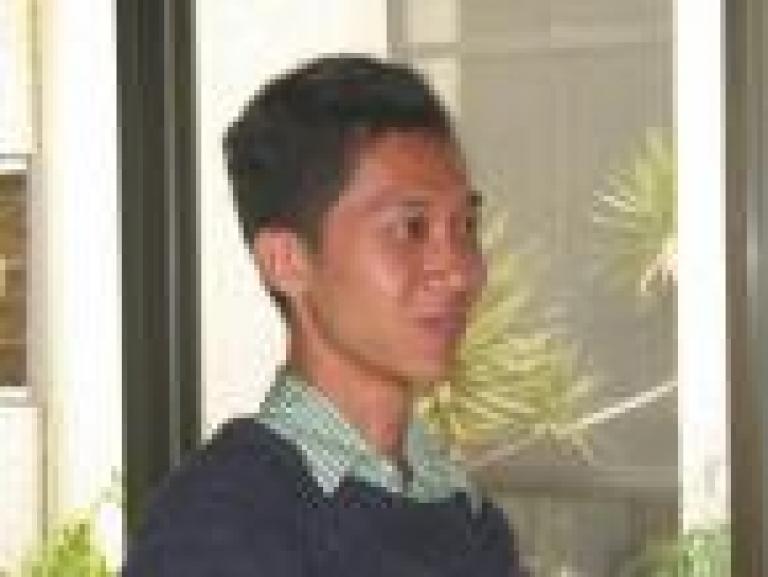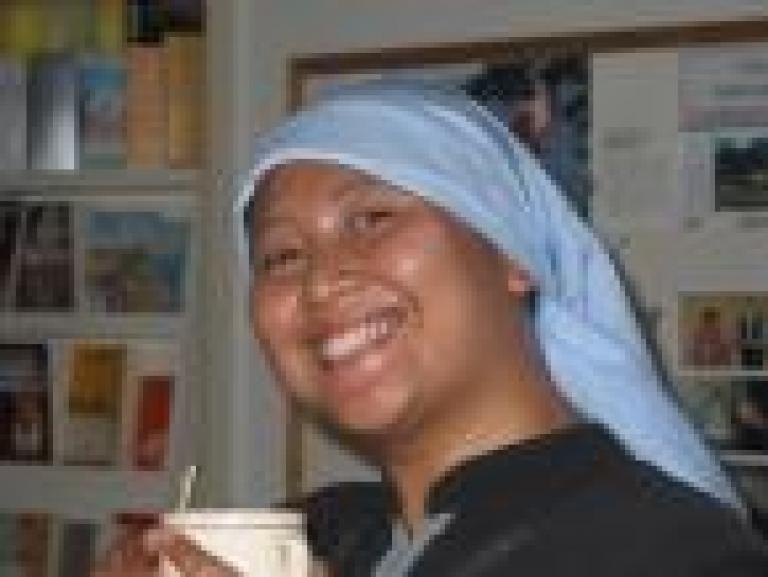Participants in last month's Life Matters course in Australia included several who had attended the Asia-Pacific Youth Conference in Cambodia. A rainbow of people have just attended a 9-day Life Matters course at Armagh, the MRA-IofC centre in Melbourne. The 13 people from 10 countries included several who took part in last year’s Asia-Pacific Youth Conference (APYC) in Cambodia. Among the Australian participants was Kaylea Fearn, Victorian Secretary of the National Council of Churches. Before leaving, she spoke of ‘the great sense of global community’ she had felt at Armagh.

The course aims to develop skills and character strengths for those who want to bring change around them. This development was evident on the final evening of the course, when Melbourne residents came to hear from the participants.
A participant from China showed an artwork he had painted during the course, saying he wanted to use his artistic gifts to raise awareness of the environmental issues facing his homeland. To do this, he had to live with integrity. As one step, he had decided to ask forgiveness of two women who were his girlfriends for a year, neither knowing of the other’s existence!

A Cambodian participant outlined her action following the Asia Pacific Youth Conference (APYC). At the time her father had estranged himself from her for 18 years. She wrote him a letter. He responded, and the relationship is beginning to grow. Previously, she said, she had so distrusted men that she had no hope of a faithful marriage. But the faithfulness of the married couples helping with Life Matters had given her hope.
An African student, a refugee for 18 of his 22 years, who arrived in Australia six months ago, spoke of the conflict that had forced him to flee from his country. He wants to contribute to healing, starting by bringing together people from both sides of the conflict who are resident in Melbourne.
Here are extracts from the speeches of two Asian participants:
Phlong Pisith

We are the younger generation of Cambodians, born to parents who continue to bear hatred in their hearts and show, by their behaviour, feelings they have harboured for decades.
Cambodia and Vietnam are neighbours. A turbulent history has left much hatred on both sides. Following the APYC I felt that the young generation could make a big change by forming a group of young people to work and build friendships with each other. As a result, Cambodians visited Vietnam last November for a relationship-building dialogue, and worked and traveled together. This created the feeling that we were brothers and sisters and that we were meant to care for each other.
Over Khmer New Year in April we will host a similar dialogue in Cambodia. About 20 Vietnamese friends will visit, work and do community service in our villages. We hope this time together can continue to help heal our past. We can learn more about the different features of our two countries’ cultures and, through that, gain a deeper understanding of each other.
Pinky Hidayati

I used to think that Easterners were more polite than Westerners, and more religious. I was proud of this. So I have been surprised by this visit to Melbourne.
During the course my room-mates were from Australia and Poland. We shared stories about our families and life style, experiences, values and beliefs. I found that their way of life was not very different to mine. In fact, I found that they were dealing with certain issues better than we were. So I began to think, ‘What’s the difference between East and West?’ Easterners are polite, but Westerners are also polite. Easterners are friendly, but Westerners are also friendly. I have found something very interesting here.
I was touched by the honesty and kindness of Westerners. I dropped my watch when visiting a museum. I hadn’t even realised this, when a man came and gave it back to me. He had found it in another part of the museum, and he had taken the time to find me.
I had dinner with a family whose father had worked in my country. He kept questioning me about my country’s policies, and debated all my answers. The conversation became even harder when he questioned my religion. I was so upset, and kept thinking about this. I began to realise that I must learn a lot more about my country and my religion. I should have done this a long time ago. But now I have decided to ‘step out of my comfort zone’ and do so.

